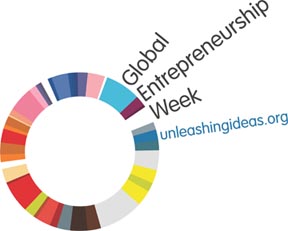St Peter Port Capital Limited (the “Company†or “St Peter Portâ€), the AIM listed investment company whose aim is to generate value by investing predominantly in growth companies shortly before an initial public offering (“IPOâ€) or other exit event, announces its preliminary results for its second year of investment..

Highlights
• 36 investee companies at year end
• realised to date, £22.5m in cash f r o m investee companies, generating a gain on investment of 39%
• following the year end, a further £5.67m invested in five companies, two of which are new to the portfolio
• NAV of 105.6p per share, up 3.1% over the year
• profit of £877,000 (2008: £3.69m), eps of 1.2p (2008: 4.9p)
Bob Morton, Chairman of St Peter Port, said:
“I am pleased to report that the Company has weathered the storm and maintained the net a s s e t value of the portfolio. We believe that many of the companies within the portfolio have considerable upside potential in a portfolio of high risk/high reward companies.â€
Tim Childs, Chief Executive of St Peter Port Investment Management Limited, said:
“As at the 14 July 2009, we had £16.6m to invest in new opportunities and follow-on investments. Competition is limited and we are therefore being offered these on attractive terms.â€
St Peter Port Capital Limited floated on AIM on 16 April 2007, raising £75m in new equity. The Company is a Guernsey registered closed-ended investment company. The Company’s objective is to achieve returns f r o m the uplift on or shortly after IPO, but the exit f r o m the investment could also be a trade sale. The universe for investment is principally companies across a broad range of sectors and geography expecting to conduct an IPO or achieve a trade sale or other liquidity event in the months after the Company’s investment. However, in current conditions, it may also include companies which are already public whose value is not properly recognised by stock markets. The initial focus is on companies targeting UK, US and Commonwealth stock markets although pre-IPO companies looking to float on other exchanges will also be considered. The Company appointed St Peter Port Investment Management Limited, a joint venture between Broughton Investments Group Limited (“Broughtonâ€), a company in which Tim Childs is interested, and Shore Capital Limited (“Shore Capitalâ€), the absolute return fund management specialist which currently manages approximately £1.4 billion, to act as its investment manager (“the Investment Managerâ€).
Learn more about Shore Capital :
Google:Â Shore Capital share price info –
Linkedin:Shore Capital information –
FT:Â Shore Capital Profile –
Puma Hotels:Shore Capital
Chairman’s Statement
Introduction
Although our second year of investment was a year of unprecedented difficulty for financial markets around the world, I am pleased to report that the Company has weathered this storm well. It has maintained the net a s s e t value of its portfolio which includes a number of companies with considerable upside potential.
Investment Environment and Portfolio Composition
St Peter Port was relatively fully invested at the start of 2008/9, having invested most of the funds raised at flotation in the previous year. A number of companies in which we had invested were coming to market shortly or otherwise close to a liquidity event such as a trade sale. The portfolio accumulated in the first year was weighted its towards three sectors: oil and gas exploration and production; mining and resources and renewable energy/clean technology, reflecting suitable opportunities which had been identified for St Peter Port’s strategy. At the start of 2008/9 St Peter Port held stakes in 41 companies.
During the earlier part of 2008/9, commodity prices remained high, giving rise to a number of flotations and other exit opportunities. Wherever possible, as described in the report below, the Investment Manager took full advantage of these to release cash. Over the same period the Company redeemed nearly all its hedge fund holdings other than one much reduced holding in a third party fund of funds which has staged redemption arrangements. However, after the banking crisis became extreme in September 2008 the opportunities for achieving exits vanished and only began tentatively to return since the year end.
Given the extent of the turmoil in financial markets, and its impact on the global economy, the Company refrained f r o m making any further investments in the second half of 2008/9. This reflected the conditions for a number of months in which markets – were unable to find any sort of equilibrium.
Investments and Realisations during the Year
During the first half of 2008/9, the Company invested a further £14.9m in nine companies, two of the investments being follow-ons. The focus of these investments shifted f r o m a possible exit through flotation to investments where there was a credible expectation of a liquidity event in any form within a relatively short period, such as a trade sale or repayment of a loan.
To date the Company has realised over £22.5 million through disposals (over £22 million in 2008/9), generating a gain on investment of 39 per cent. This was largely derived f r o m six investments which were wholly or substantially realised during the year and one other which was partially realised.
Share Buy-Back
Shortly before the year end the Company bought back 1.95m of its own shares at 30p per share. These shares are currently being held in treasury. As discussed below, the effect of this buy-back was to enhance net a s s e t value per share.
Basis of Valuation for Financial Results
Determining the Company’s financial results for the year is an exercise largely dependent on an assessment of the fair value of each investment held. Where investments are now quoted, there is an external basis for determining fair value and we have valued holdings at the bid price of the shares. Where this is not available IFRS rules require us to select a fair value.
Values of our oil and gas and resource stocks are influenced by a number of factors, including company progress, exchange rates and commodity prices. Where we have invested in a mining or petroleum project, when the company receives positive results f r o m drilling geological investigation this should lead to a rise in value. We report in sterling but many of our investments were made in foreign currency. Even where this was not the case, the value of the investment is frequently determined by reference to dollar values rather than sterling. We have also taken account of any pre-defined uplift on a liquidity event; in some cases we have written investments down heavily and in others written them up.
Financial Results
The Company made a profit in the year of £877,000 (2007/8: £3.69m), generating earnings per share of 1.2p (2007/8: 4.9p). Income arose largely f r o m the net gains in fair value of investments of £2.51m (2007/8: £4.57m).
Net a s s e t s at year end were largely unchanged f r o m the previous year at £77.13m (31 March 2008: £76.84m). However, net a s s e t value per share increased by 3.1 per cent to 105.58p (31 March 2008: 102.45p), largely as a result of the share buy-back.
Balance Sheet
As at 31 March 2009, the Company held £54.3m in investments in companies, being equity investments and loan instruments (31 March 2008: £55.9m). Nearly all of the remaining balance sheet was in cash, £22.6m (31 March 2008: £12.5m – including commercial paper), the principal difference being that £8.7m was held in hedge funds at 31 March 2008, which was reduced to £130,000 at the year end.
Activity since the Year End
Since the year end conditions have become more stable and the Company has resumed making new investments, described below in the Investment Manager’s report. Three of these investments are follow-ons into companies in which we were already shareholders and the other two are new investments. The pricing of each of these reflects the depressed market conditions which currently prevail and offer the prospects of significant uplifts on exit.
As a result of these investments since the year end, the Company, as at the 14 July 2009, held £16.6m in cash and available for investment. We therefore have the cash to cherry pick f r o m the best of our existing portfolio and new opportunities at a time when many potential participants are illiquid.
The investment climate has become less volatile and commodity prices have recovered substantially since their lows around the turn of 2008. Competition in our area f r o m other funders is limited. We believe that many of the companies within the portfolio have considerable upside potential in a portfolio of high risk/high reward companies. The Board views the future with confidence.
Bob Morton
Chairman
Via EPR Network
More Financial press releases














